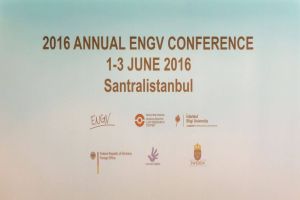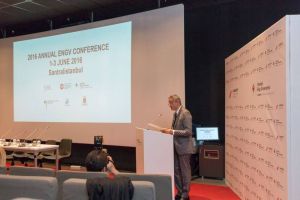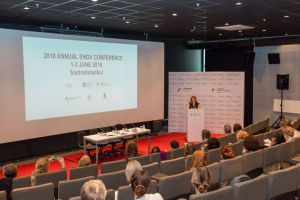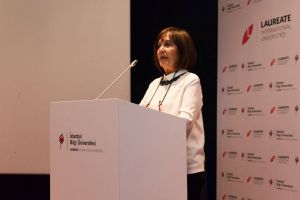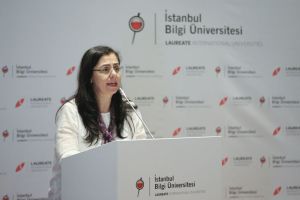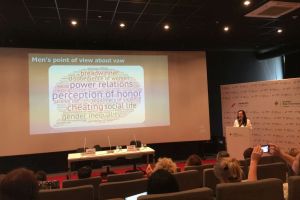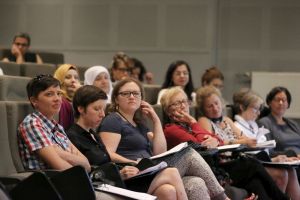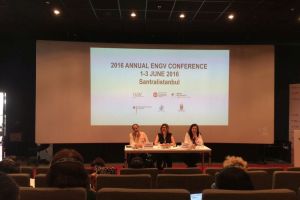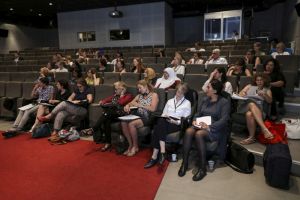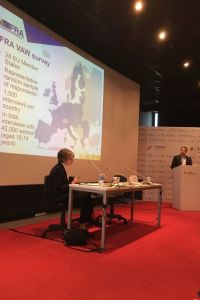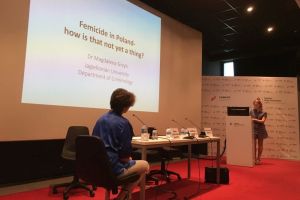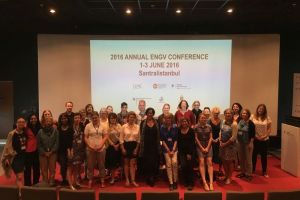Annual Conference of European Network on Gender and Violence 2016, 1-3 June 2016
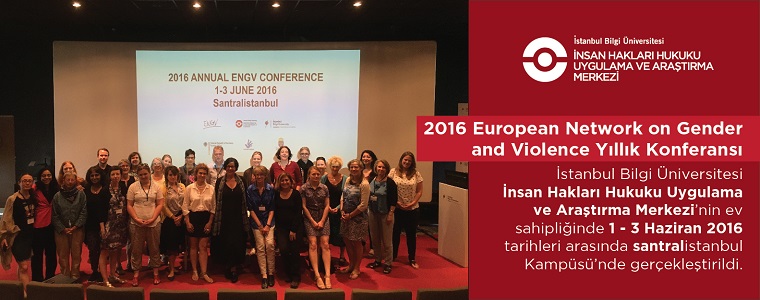
The European Network on Gender and Violence (ENGV) is a network of over 250 researchers from different disciplines and countries. It supports exchange and collaboration among scholars and professionals who address violence, gender, violence prevention and related issues. The current network coordinators are Monika Schröttle from University of Dortmund, Germany, and Renate Klein from London Metropolitan University, England, and University of Maine, USA. The network holds annual conferences to facilitate interdisciplinary discussion of the latest European research in the field. The network was initiated in 1996 at a conference in Banff, Canada, and convened annual conferences until 2003. From 2004 to 2007 many network members participated in the Coordination Action on Human Rights Violations (CAHRV), funded by the European Commission under the 6th Framework Programme. In 2012, annual network conferences resumed.
2016 Annual Conference of the European Network on Gender and Violence was organized and hosted by Istanbul Bilgi University Human Rights Law Research Center at santralistanbul Campus between 1-3 June 2016 with the support of the Consulate General of the Federal Republic of Germany in Istanbul and the Consulate General of Sweden in Istanbul.
The conference started on 1 June 2016 in the afternoon with the Young Scholars Day where PhD students or recent graduates of PhD programs shared their on-going studies. The second day of the conference was made partially public and some selected representatives of women’s NGOs in Istanbul, lawyers and other interested participants in this realm have been invited. After the official welcomes by Sevinç Eryılmaz (Lecturer, Istanbul Bilgi University Human Rights Law Research Center), Professor Turgut Tarhanlı (Dean of the Faculty of Law and Director of the Human Rights Law Research Center) and Dr. Georg Birgelen (Consul General of the Federal Republic of Germany in Istanbul), Professor Yakın Ertürk (former UN Special Rapporteur on the Causes and Consequences of Violence against Women) made a keynote speech on “Violence against women: Paradigm, policy and practice”. After the keynote speech there was a panel discussion on research and data on violence against women in Turkey. Assoc. Prof. İlknur Yüksel Kaptanoğlu from Hacettepe University compared the findings of the two nation-wide surveys that are conducted in 2008 and in 2013 on violence against women in Turkey. Hülya Gülbahar, prominent lawyer and women’s rights activist from Equality Watch Women's Group (EŞİTİZ), underlined the recent developments that put the positive changes accomplished by women’s rights movement in Turkey in the 2000s under risk.
In Panel 1: “Lay” concepts and “expert” theories, Barbara Kavemann (Germany) presented the findings of the research conducted by herself and Cornelia Helfferich: “Subjective theories on sexual violence: How sexually abused girls share common prejudices despite of their own experience”. Second speaker in this panel was Mart Busche (Germany): “Intersectional challenges in violence research”. In Panel 2: Collecting, interpreting and comparing multi-country evidence, Sami Nevala from the Fundamental Rights Agency (FRA) presented some of the findings of the FRA’s EU wide research on violence against women: “Coercive control in intimate partner violence against women across the EU”.
On the second day of the conference, four more panel sessions were organized. In Panel 3: Prevention and Intervention I, Sietske Dijkstra (the Netherlands) made a presentation on “Agenda-setting for achieving post-divorce safety”. Ravi Thiara and Christine Harrison (UK) made a presentation on “Child contact as a site of post-separation violence and abuse”. In Panel 4: Prevention and Intervention II, Marianne Hester (UK) presented the findings of her research on the “Reflections on criminal (in)justice in cases of rape and prevention of revictimisation”. Lis Bates (UK) shared the preliminary findings of her research on “What is honor-based violence in the UK and who is doing it? Creating a typology from case file analysis”. Heba Zedan (Israel) presented the findings of the research conducted by herself and Prof. Muhammad Haj-Yahia: “The psychological consequences of the experiences of Palestinian women in Israel with sexual abuse through the life-span: Are they moderated by religiosity?”. In Panel 5: New perspectives and approaches Maggie Evans (UK) presented the findings of a research conducted by herself together with other colleagues: “Think-aloud methodology”. The second speaker in that panel was LynnMarie Sardinha (UK) and she presented “Attitudes to domestic violence in low and middle-income countries: A multi-level approach to prevention”. Panel 6, the last panel session in the 2016 Annual Conference of ENGV was on Femicide. Monika Schröttle (Germany) made a presentation on “Further plans of the COST-Action on Femicide”. Anna Constanza Baldry (Italy) shared the preliminary findings of a research that she conducted together with other colleagues: “Special orphans of femicide”. Lastly, Magdalena Grzyb (Poland) shared her preliminary ideas for a research on “Femicide in Poland”.
There were also poster presentations throughout the conference. The conference brought together around 40 members of ENGV from different European countries and Turkey. The participants came from the United Kingdom, Germany, Denmark, Finland, Israel, Italy, the Netherlands, Turkish Republic of Northern Cyprus, Poland and Turkey.
News article published by the European Union Agency for Fundamental Rights: “European Gender and Violence Network discusses FRA violence against women survey results”
Conference photos

